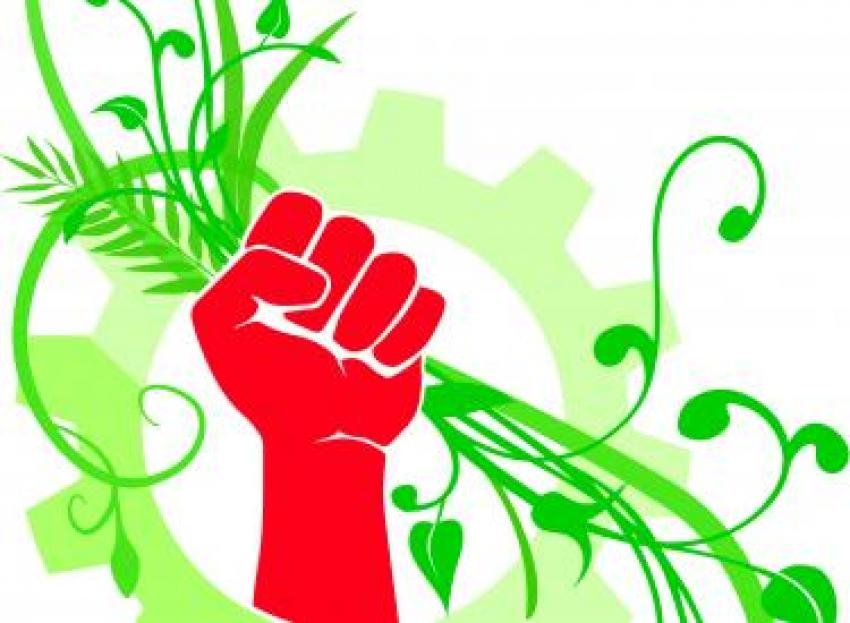
Climate and Capitalism editor Ian Angus takes a look at seven new titles for an ecosocialist bookshelf.
***
Planetary Mine: Territories of Extraction under Late Capitalism
By Martín Arboleda
Verso, 2020
Rethinks the politics and territoriality of resource extraction, arguing that extraction entails much more than the mere spatiality of mine shafts and pits, Planetary Mine points towards the expanding webs of infrastructure, of labour, of finance, and of struggle, that drive resource-based industries in the 21st century.
A Planet To Win: Why We Need a Green New Deal
By Kate Aronoff, Alyssa Battistoni, Daniel Aldana Cohen, & Thea Riofrancos
Verso, 2019
Explores the political potential and concrete first steps of a Green New Deal, calling for dismantling the fossil fuel industry, building beautiful landscapes of renewable energy, and guaranteeing climate-friendly work, no-carbon housing and free public transit. The authors argue that a Green New Deal in the United States can strengthen climate justice movements worldwide.
All Hell Breaking Loose: The Pentagon’s Perspective on Climate Change
By Michael T Klare
Metropolitan Books, 2019
While others still debate the causes of global warming, the Pentagon is intensely focused on its effects. Drawing on little-known reports and government documents, renowned security expert Michael Klare shows that the US military sees the climate threat as imperiling the country on several fronts at once, and is developing strategies to cope with it. Its response shows that where it counts, the immense impact of climate change is not in doubt.
Blowout: Corrupted Democracy, Rogue State Russia, and the Richest, Most Destructive Industry on Earth
By Rachel Maddow
Penguin Random House, 2019
A switchback journey around the globe, revealing the greed and incompetence of Big Oil and Gas and its role in weakening democracies worldwide, fouling oceans and rivers, and propping up authoritarian thieves and killers. Maddow argues for an end to subsidising the wealthiest businesses on earth, for a fight for transparency, and for checks on the influence of the world’s most destructive industry and its enablers.
Climate Futures: Re-imagining Global Climate Justice
Edited by Kum-Kum Bhavnani, John Foran, Priya A. Kurian, & Debashish Munshi
Zed Books 2019
Bringing together insights from interdisciplinary scholars, policymakers, creatives and activists, this book tries to envision planetary social movements robust enough to spark the necessary changes needed to achieve deeply sustainable and just economic, social, and political policies and practices.
The Nature Of Canada
Edited by Colin M Coates & Graeme Wynn
OnPoint Press (UBC Press) 2019
Short essays, photos and illustrations explore how indigenous communities, fishers, fur traders, farmers, foresters, miners and others have engaged with and tried to tame nature in Canada from the Ice Age to the Anthropocene — and what those engagements mean for efforts to reconcile economic growth and conservation.
How The World Works: The Story of Human Labor from Prehistory to the Modern Day
By Paul Cockshott
Monthly Review Press, 2019
Using the dual lenses of Marxist economics and technological advance, Paul Cockshott provides a stunningly acute critical perspective of human history, from pre-agricultural societies through slave-based societies to modern capitalist and socialist economies. Both a sweeping and detailed work of historical analysis and an important presentation of the materialist theory of history.
[Inclusion of a book on this list does not imply endorsement of all, or any, of its contents.]